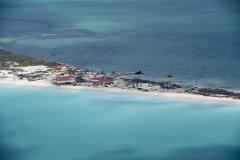- عربي
- 中文
- English
- Français
- Русский
- Español
Ministers from Landlocked Developing Countries Call for Improved Trade, Transport and Economic Opportunities
Press Release
ASTANA, 16 May 2018 – Ministers and senior government officials from landlocked developing countries (LLDCs) and development partners, are gathering in Astana, Kazakhstan today to identify ways in which trade, economic transformation and the development of transport infrastructure can benefit LLDCs.
Hosted by the Government of Kazakhstan, the two-day Ministerial Meeting of Landlocked Developing Countries on Trade and Transport, will also include senior representatives from the UN, international and regional organizations, financial institutions and the private sector. The event will highlight the importance of implementing the 2030 Agenda for Sustainable Development and marks the start of a preparatory process for the comprehensive high-level midterm review of the Vienna Programme of Action (VPoA) to be held in 2019. The midterm review will provide an opportunity to review the progress that has been made in the implementation of the VPoA, a programme recognized as an integral part of the 2030 Agenda.
“I am delighted that Ministers from landlocked developing countries have come together in Astana to address vital issues affecting their countries. I wish to thank our generous hosts, the Government of Kazakhstan and I hope that over these next two days recommendations and opportunities can be identified to enhance trade transport and economic opportunities which can help to transform the lives of communities living in LLDCs” said Ms. Fekita ‘Utoikamanu, High-Representative and Under-Secretary-General for Least Developed Countries, Landlocked Developing Countries and Small Island Developing States.
The Ministerial Meeting will bring together more than 80 participants. The first day will take place at Marriott Astana Hotel. On day two the meeting will move to the Congress Center of the Capital, where it will be held on the side lines of the Astana Economic Forum 2018. Key speakers will include the High-Representative and Under-Secretary-General for Least Developed Countries, Landlocked Developing Countries and Small Island Developing States, Ms. Fekitamoeloa Katoa ‘Utoikamanu, H.E. Mr. Zhenis Kassymbek, Minister of Investments and Development of the Republic of Kazakhstan; H.E. Ambassador Federico Alberto González Franco, Vice Minister of the Ministry of Foreign Affairs of Paraguay; Mr. Mukhisa Kituyi, Secretary General of the United Nations Conference on Trade and Development; H.E. Mr. Albert M. Muchanga, Commissioner for Trade and Industry, African Union Commission and Mr. Yonov Frederick Agah, Deputy Director-General of the World Trade Organization.
“I am honored to welcome you at Ministerial Meeting of Landlocked Developing Countries on Trade and Transport”, said Mr. Zhenis Kassymbek, Minister of Investments and Development of the Republic of Kazakhstan.
“We understand that sustainable transport is a key factor for the progress and future of the developing countries. The recommendations of this meeting will allow us to broaden the forms of the cooperation in the field of transport, infrastructure and overcome the barriers of remoteness and costs”, acknowledged Mr. Kassymbek, highlighting the success that his country has achieved in creating the transit LAND corridors through its favourable geographical position.
Landlocked developing countries are often long distances from seaports. They have poorly developed transit and transport systems and rely on neighbouring countries for transit access, which translates to high trade costs for landlocked developing countries. These high trade costs impact landlocked developing countries’ trade competitiveness. They continue to be marginalized in international trade, accounting for less than 1 per cent of global merchandize exports. Landlocked developing countries also rely heavily on primary commodities, which have little or no value added to them and they face lack of diversification of their exports and imports, and increased vulnerability to volatile prices of commodities and external shocks.
To address those challenges, the Government of Kazakhstan in August 2003, hosted the First International Ministerial Conference of Landlocked and Transit Developing Countries and Development Partners during which the Almaty Programme of Action (APoA) was adopted to address special needs and challenges faced by the landlocked developing countries in achieving their development goals. In November 2014, a new programme was adopted the Vienna Programme of Action for Landlocked Developing Countries for the Decade 2014-2024. This programme of action identifies fundamental transit policy issues, infrastructure development, international trade and trade facilitation, regional integration, structural economic transformation and means of implementation as its key priority areas.
The meeting will conclude on 17 May by adopting a LLDC Ministerial Declaration to pave the way forward on Trade and Transport.
Media Contact:
- Ms. May Yaacoub, UN-OHRLLS - yaacoubm@un.org





